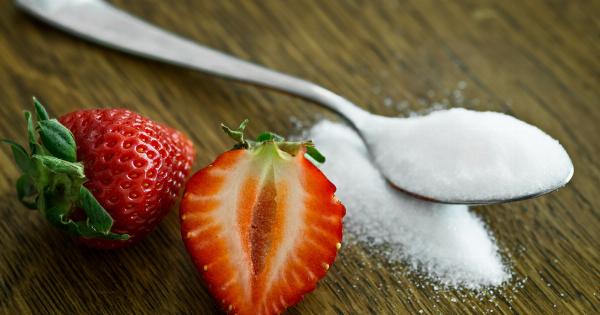Seasonal cravings for sweets are a common phenomenon that many people experience, especially during the holidays and the change of seasons.
These cravings are often intense, and individuals may feel like they cannot resist the urge to indulge in sugary treats. In this article, we will look at some of the reasons why people experience these intense seasonal cravings for sweets.
Sugar Addiction
One of the main reasons why people crave sweets is because of sugar addiction. Research has shown that sugar can be addictive, just like drugs such as cocaine and heroin.
When we consume sugar, the brain releases dopamine, which gives us a feeling of pleasure and happiness. Over time, our bodies can become tolerant to the effects of sugar, and we may need more and more to achieve the same level of pleasure.
Holiday Memories
Another reason why people crave sweets during the holidays is because of the memories associated with them. Many holiday traditions involve sweets, such as baking cookies and decorating gingerbread houses.
These traditions can create strong emotional connections to sugary treats, making them more desirable during the holiday season.
Stress and Mood
Stress and mood can also play a role in intense cravings for sweets. When we are stressed, our bodies release the hormone cortisol, which can increase our appetite for sugary foods.
Eating sweets can also provide a quick boost of energy and mood, which can be a temporary relief from stress. However, consuming too much sugar can actually worsen mood and increase anxiety in the long run.
Seasonal Changes in Diet
Seasonal changes in diet can also contribute to intense cravings for sweets. During the winter months, many people consume heavier and heartier foods, such as stews and casseroles.
This can lead to a decrease in fruit and vegetable consumption, which can leave the body craving the sweetness of sugar. Additionally, colder temperatures may make people crave comfort foods, which are often high in sugar and fat.
Body Chemistry and Hormones
Finally, body chemistry and hormones can also play a role in seasonal cravings for sweets. Serotonin, a neurotransmitter that regulates mood, sleep, and appetite, can decrease during the winter months.
This can lead to an increase in carbohydrate cravings, as carbohydrates increase serotonin levels in the brain. Additionally, changes in estrogen and progesterone levels can also affect cravings for sweets.
The Bottom Line
Intense seasonal cravings for sweets are a common phenomenon that many people experience. Sugar addiction, holiday memories, stress and mood, seasonal changes in diet, and body chemistry and hormones can all contribute to these cravings.
However, it is important to remember that consuming too much sugar can have negative effects on our health. To satisfy cravings in a healthier way, try incorporating more fruit into your diet or indulge in a small amount of dark chocolate.




























